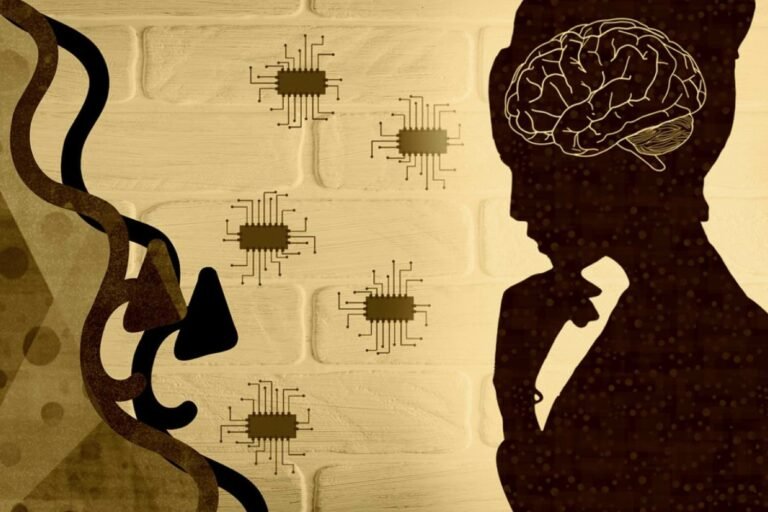Bogged down in the mire of a post-cyberpunk dystopia, at odds with our environment and each other, there is a primal desire within us all to seek escape from that which we must endure—even if only for a short while. The universal appeal of fiction in all forms is testament to this. In times of heightened adversity, these escapes increase in popularity. The rise of pulp fiction magazines during the Great Depression is one example of this. But to contemporary readers of those tales of the strange, our options for escaping reality would seem like another science fiction story.
What escapes might our future afford us? To what lengths might we go to elude reality when it becomes not only reminiscent of George Orwell’s 1984 or William Gibson’s Neuromancer, but surpasses them?
The scientific frontier of entertainment has long mingled with science fiction. Virtual reality (VR) is one of the most recognizable forms from both. But the VR we use today is a far cry from what we have imagined for the technology. Arguably, few fields outside of spaceflight has so long and disparate a relationship. Science fiction has teased a future of worlds to explore inside computers. A few examples of this are films such as The Lawnmower Man and The Matrix, and novels such as Ernest Cline’s Ready Player One. Actual VR experiences have come a long way but fall short of truly immersive worlds.
What lies over the horizon for VR? Will we create massive landscapes to cohabitate, or will we craft more personal, isolated experiences? If we chose to go it alone, how “real” could that virtual reality be? In many regards, computers today can simulate believable personalities within video games and with customer service bots. But their programming is limited. It takes little to see through the facade, and our demands for deeper immersion continue to grow. Some argue that artificial intelligence, once mastered, will solve this.


But what if that is not an option? What other solution might there be?
In my cyberpunk noir trilogy, The Night Trilogy, just such an obstacle needed to be overcome. The government outlawed Artificial Intelligence for civilian use, so it is not an option for the many virtual reality “flesh bars” dotting the landscape of New Angeles, California. For most virtual escapes, such as a tropical vacation or hiking a mountain trail, this is not a problem. But it is a concern for many flesh bars, which specialize in intimate encounters—the kind where a direct, personal connection to another human being is integral to the value of the experience… a human interface. Can a virtual reality simulation create a realistic sexual experience complete with real emotions?
I explore this question in Night Shift, the first book of The Night Trilogy. While being interviewed about his business by detectives as part of a murder investigation, the proprietor of Dreamworks—one of the city’s swankier flesh bars—explains:
“This is the one service we offer that’s not handled entirely by a computer. We have employees who interface with the system’s main server to add a human touch to our more personal encounters.”
Essentially, human operators plug in with a direct connection between their brain and the computer. They do not take a conscious role in the simulations. Instead, emotional input and output are processed by the interface. Events occurring within the simulations are fed into the operator’s brain, triggering emotional reactions in the operator on a subconscious level. The computer interprets those electrochemical reactions and determines appropriate behavior for avatars operating across multiple simulations. Thus, a single employee can “service” various clients at once. Because the employee is in a dreamlike state, there is no intellectual or physical exertion expended. But as emotional responses affect several bodily functions, there is some degree of stress on the body resulting in a degree of fatigue.
Of course, there are a myriad of other technological, biological, and ethical concerns that might arise from proposing real-world development of this sort of human interface technology. Likewise, there would be concerns about specific applications. In the suggested use as a replacement for prostitution, there could be arguments that the elimination of personal contact creates a safer alternative. On the other side, one may argue that the operator is being exploited, essentially turned into a mass-production sex mill. And what kind of business environment this creates—and the potential for corruption and exploitation—lays at the heart of The Night Trilogy.
But beyond this, what other applications might this sort of technology provide?
The recent pandemic has changed much about how we navigate life, both in personal and professional aspects. Everything from work to school, and even visits with our doctors, have been accomplished via remote methods.


We might even enhance the quality of services usually provided by an individual to many recipients at once. In the field of education, it is common for a single teacher to instruct as many as thirty students at once, often more. What if one teacher could provide a one-on-one educational experience to every one of their students?
And as our capacity to accomplish such tasks remotely is refined, so too might the demand for remote services increase. One area where this might be felt acutely very soon is in the field of mental health services. Part of the fallout of the pandemic is increased instances of mental health issues, and the support systems in place to deal with such issues might soon find themselves stretched beyond capacity.
What if one could receive therapy from an avatar rather than a real person? Any contemporary software program can nod and ask, “How did that make you feel?” But to be genuinely effective, a measure of empathy needs to be injected into the simulation. What if one therapist could empathize with a dozen clients at once using such a human interface?
There are endless opportunities to apply such technology in efficient and effective ways to enhance our lives and society, from entertainment to education to healthcare. Because part of reality is interacting with one another, injecting empathy into virtual constructs and future human interface technologies can make the difference between a virtual facsimile of reality and a true virtual reality.
B.K. Bass is an author of science fiction, fantasy, and horror inspired by classic speculative fiction. The Night Trilogy is a cyberpunk crime thriller where solving a murder leads a homicide detective down a rabbit hole of organized crime and government corruption. The first two books, Night Shift and Night Life, are available now. The final volume, Night Shadow, is coming later in 2021. You can find out more about these books and other exciting adventures at bkbass.com.

